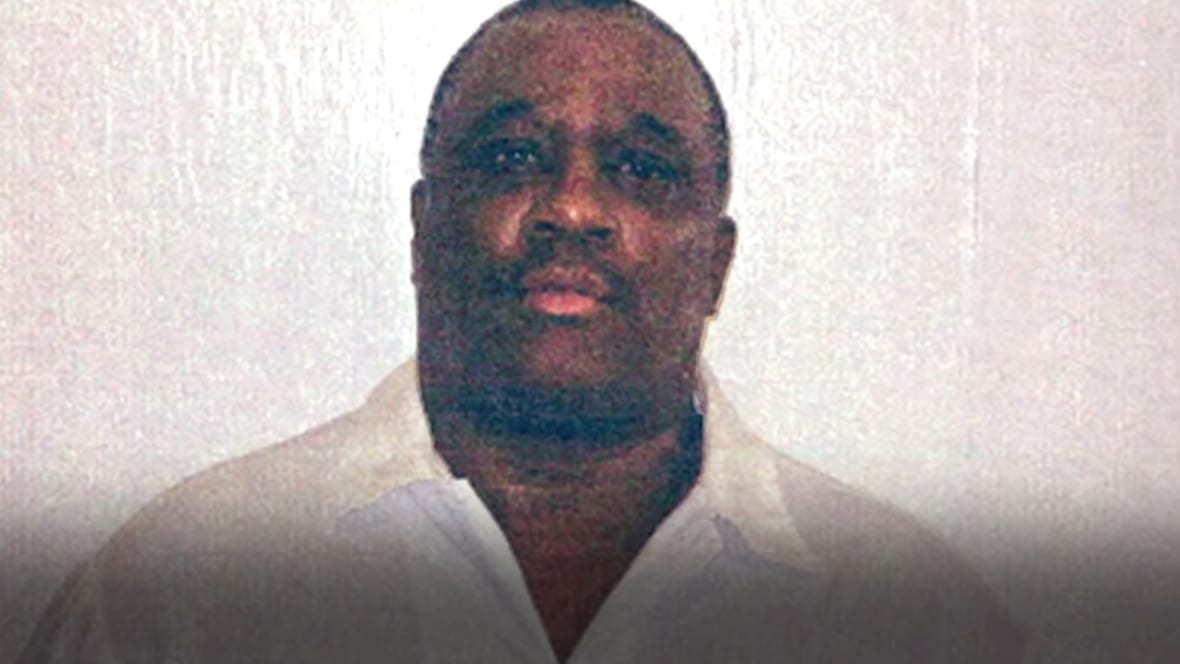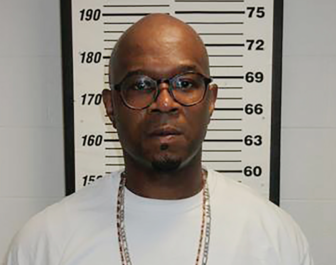An Alabama man a jury suspected was innocent of a crime that occurred more than 30 years ago now faces execution using an untested method.
Ludie Mae Tucker was stabbed in her Decatur home in October of 1991. According to AL.com, 12 jurors found Robin “Rocky” Myers guilty of killing his neighbor despite the absence of any physical evidence, a murder weapon, bloodied clothing, or hair samples.
Tucker, who died at the hospital, described her attacker as a stocky Black man wearing a white or light-colored, blood-stained T-shirt and probably a plaid shirt over the top. Her cousin, Marie Dutton, was also stabbed but survived the attack, though she could not identify the culprit.
 Robin “Rocky” Myers has been on death row in Alabama for the past 29 years. (Photo: Screenshot/YouTube.com/ACLU)
Robin “Rocky” Myers has been on death row in Alabama for the past 29 years. (Photo: Screenshot/YouTube.com/ACLU)A VCR taken from Tucker’s home was the only item that police could reportedly link to Myers via witnesses.
“They never ever placed him in the house that night,” recalled Mae Puckett, who served on the Morgan County jury in 1994, AL.com reported. She said that, at the time, it appeared the holes in the case — which she believed Myers was innocent — would result in a hung jury.
There were several jurors who refused to be budged on a verdict of guilty, so, according to Puckett, she and others fearing a second trial would result in a capital punishment agreed to convict Myers of murder and sentence him to life without parole, not death.
“Those of us who thought he was innocent had very strong feelings about it,” Puckett added, “[but] we knew those guys weren’t going to change their mind. We decided to vote him guilty … the best thing we thought we could do was spare his life.”
But Morgan County Circuit Court Judge Claude Bennett McRae disregarded the jury’s verdict and gave Myers, 61, the death penalty. He has now spent 29 years on Alabama’s death row.
Police initially detained Myers for violating his probation for an auto theft conviction. During the interrogation, Myers denied being involved but began to modify his responses to accommodate the possibilities.
His former attorney, Earle Schwarz, lost his chance to appeal in 2003 when he missed a crucial deadline. In 2004, witness Marzell Ewing acknowledged lying about seeing Myers sell Tucker’s VCR the night of the crime.
Myers’ current attorney, Kacey Keeton, is urging Alabama Gov. Kay Ivey to grant him clemency, which might result in his release from custody or a reduction of his sentence to life in prison without the chance of parole.
He was scheduled for execution in the summer of 2015 but was spared after choosing to participate in legislation concerning the state’s use of medicines in its lethal injection protocol. In 2018, he consented to die through nitrogen asphyxiation.
The state asserts that the new procedure will be available this year. If executed, Myers would be among the first people in the U.S. to be killed by nitrogen asphyxiation, a recently authorized and untested technique in Alabama.
Alabama reportedly has a history of executing people who, like Myers, assert they have an intellectual disability, despite a Supreme Court decision that doing so violates the Eighth Amendment.
Still, Myers is clinging to hope for the future. He said he looks at a photo of roses on the prison cell wall, hoping he will one day return to the outside world.
“I gotta stay strong,” said Myers, AL.com reported. “I can’t be in here, you know, with my bottom lip poked out. I don’t want to live like that.”
TheGrio is FREE on your TV via Apple TV, Amazon Fire, Roku and Android TV. Also, please download theGrio mobile apps today!
.png)











 English (US) ·
English (US) ·